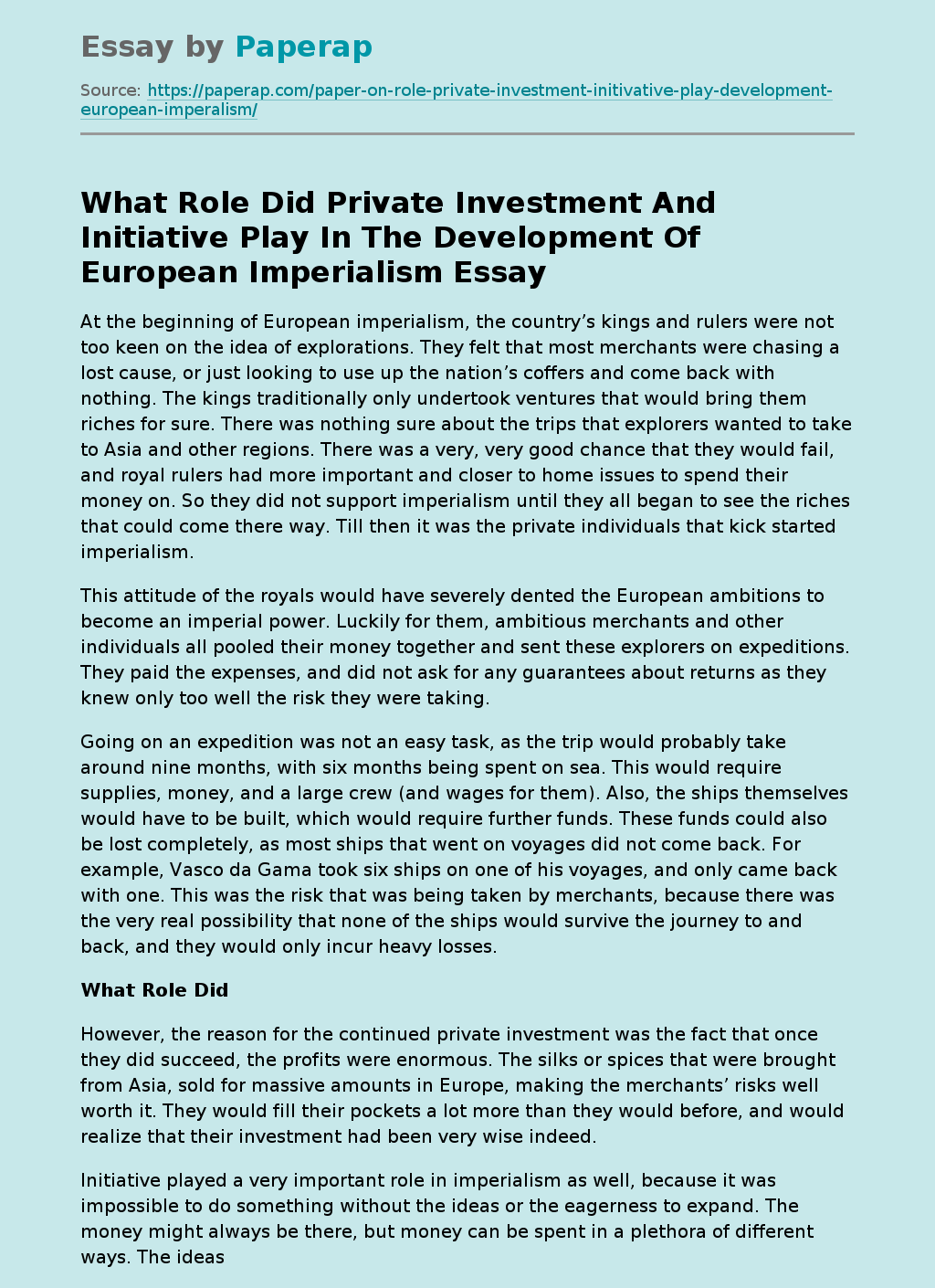Private Investment in European Imperialism
At the beginning of European imperialism, the country’s kings and rulers were not too keen on the idea of explorations. They felt that most merchants were chasing a lost cause, or just looking to use up the nation’s coffers and come back with nothing. The kings traditionally only undertook ventures that would bring them riches for sure. There was nothing sure about the trips that explorers wanted to take to Asia and other regions. There was a very, very good chance that they would fail, and royal rulers had more important and closer to home issues to spend their money on.
So they did not support imperialism until they all began to see the riches that could come there way. Till then it was the private individuals that kick started imperialism.
This attitude of the royals would have severely dented the European ambitions to become an imperial power. Luckily for them, ambitious merchants and other individuals all pooled their money together and sent these explorers on expeditions.
They paid the expenses, and did not ask for any guarantees about returns as they knew only too well the risk they were taking.
Going on an expedition was not an easy task, as the trip would probably take around nine months, with six months being spent on sea. This would require supplies, money, and a large crew (and wages for them). Also, the ships themselves would have to be built, which would require further funds. These funds could also be lost completely, as most ships that went on voyages did not come back.
For example, Vasco da Gama took six ships on one of his voyages, and only came back with one. This was the risk that was being taken by merchants, because there was the very real possibility that none of the ships would survive the journey to and back, and they would only incur heavy losses.
What Role Did
However, the reason for the continued private investment was the fact that once they did succeed, the profits were enormous. The silks or spices that were brought from Asia, sold for massive amounts in Europe, making the merchants’ risks well worth it. They would fill their pockets a lot more than they would before, and would realize that their investment had been very wise indeed.
Initiative played a very important role in imperialism as well, because it was impossible to do something without the ideas or the eagerness to expand. The money might always be there, but money can be spent in a plethora of different ways. The ideas and the desire to expand, and the initiative to see the opportunities for profit must be there to start of their imperialism. The Europeans had something that maybe other civilizations in the past simply didn’t. They had the desire and the inspiration to see that imperialism was an excellent idea, and the massive amounts of profits and land and glory that it would bring them.
Private investment is what got the French such as John Cabot towards North America, and the eventual French colony of Quebec. They had no support from their rulers. The same occurred in India, where the French did compete with the British and the Dutch for supremacy. Of course they did lose out, because of no support from the government, but private efforts got them there, and helped them maintain the colony of Pondicherry for a long time.
In a sense, the Europeans would never have succeeded in their imperialistic ways if it had not been for private investors. Of course, it was royal backing that got the Portuguese, English, and Spanish the colonies around the world and helped them maintain them. However, it was individuals that started it all of. Had the private investors not taken the risk, then the later colonization’s would never have happened, because Europeans would never have sailed to such regions. We can all thank the monarchs for their help in later European imperialism, yet the foundations were all due to private individuals taking a gamble, and hoping it would pay of. And boy did it pay of!
Private Investment in European Imperialism. (2019, Dec 05). Retrieved from https://paperap.com/paper-on-role-private-investment-initivative-play-development-european-imperalism/

